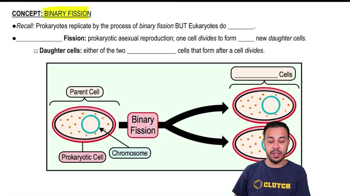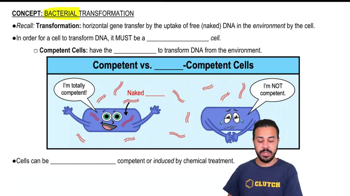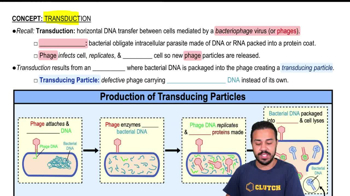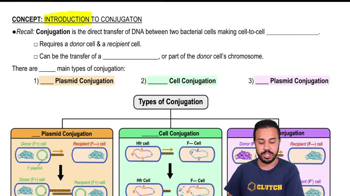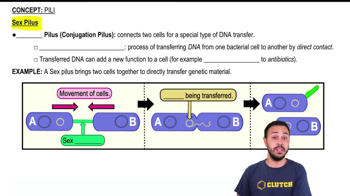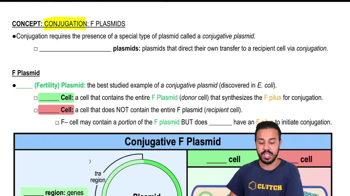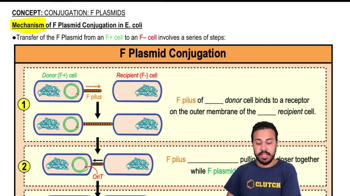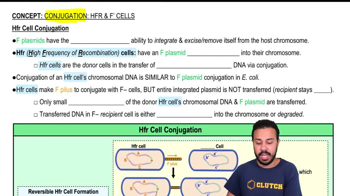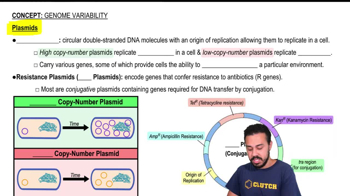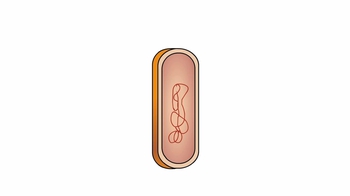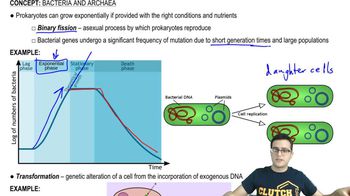26. Prokaryotes
Prokaryotic Reproduction
26. Prokaryotes
Prokaryotic Reproduction
Showing 11 of 11 videos
Additional 14 creators.
Learn with other creators
Showing 17 of 17 videos
Practice this topic
- Multiple ChoiceWhy is salt a good preservative to use for foods such as pork and fish?1933views
- Multiple ChoicePlasmids __________.1528views
- Multiple ChoiceHow is it possible that as many as 9 million mutations can arise each day in the population of E. coli inhabiting one human?993views
- Multiple ChoiceIn the absence of meiosis and sexual reproduction, what general process allows genetic recombination among prokaryotes?1244views


